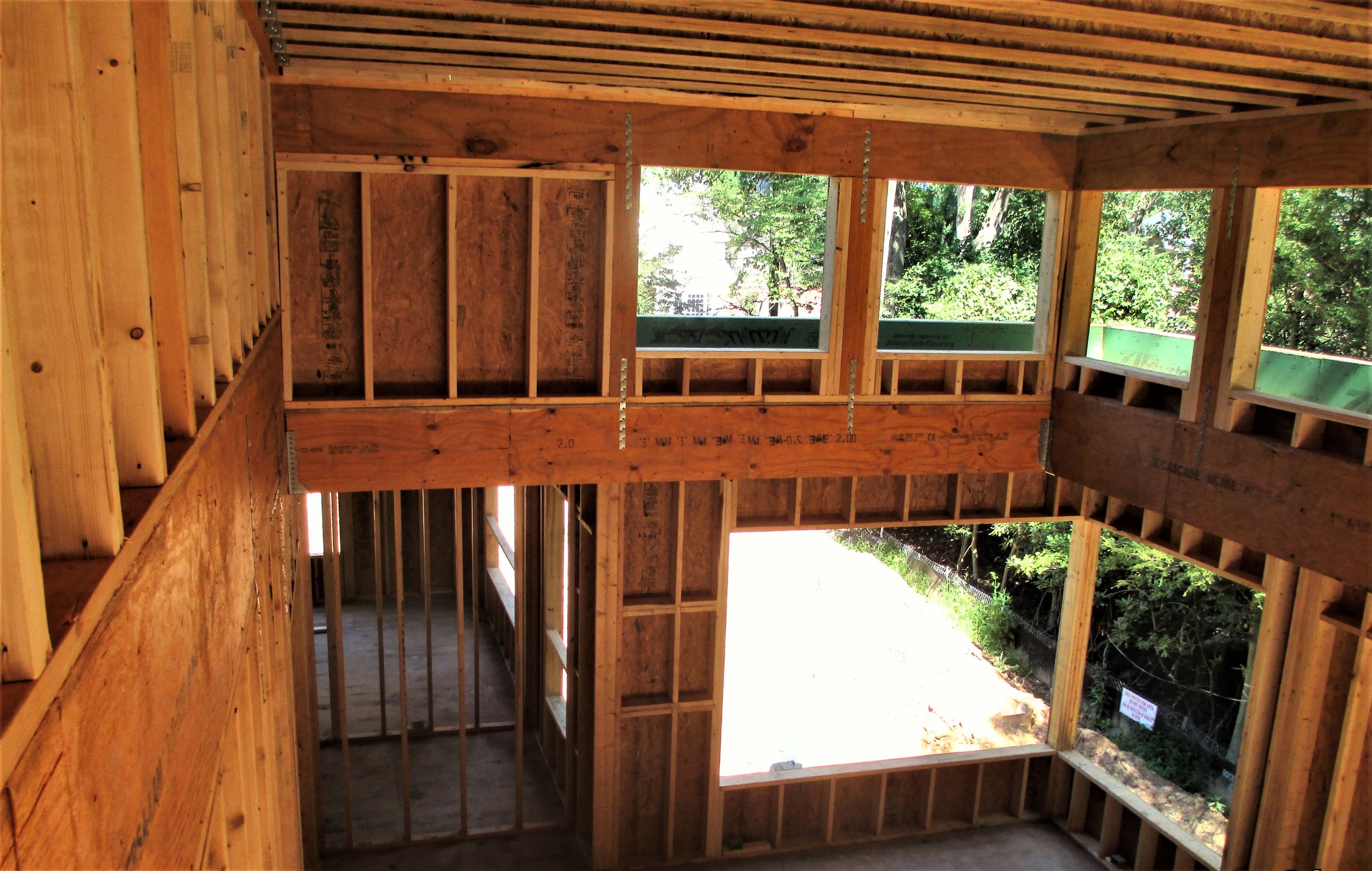"a Structural Engineer specifically assesses the stability and condition of the supporting structure."
What is a Structural Engineer and why should I care?
Structural Engineers are highly trained professionals that are licensed by states and who specialize in the assessment, design and analysis of the structure for buildings, bridges, retaining walls, etc. Their knowledge is rooted in the basic engineering principals that they learn in Engineering School and their job training. In order to be a structural engineer one must successfully complete an accredited engineering education, complete a minimum number of years as an Engineer-In-Training (EIT) and pass the Professional Engineering exam.
When would I want to hire a Structural Engineer?
Structural Engineers should be hired for the following reasons:
- If you are building a new home or addition to your home
- If you are buying or selling a home and there is structural distress or damage that may affect the sale
- If structural damage, distress or water infiltration is found
- If you plan to make alterations to your home including removing bearing walls, columns, adding heavy objects on the floors, etc.
What is the difference between an Architect, a Contractor and a Structural Engineer? Do I need the help of all of them?
Architects concentrate on the aesthetics, form and functionality of buildings while Contractors actually construct the buildings that are designed by Architects and Engineers. Architects and Contractors, while they should have basic knowledge of basic structural concepts and structural systems for houses, lack the expertise required to properly analyze, design and assess structures based on physics and engineering theory. Structural Engineers make sure that buildings are stable and remain so and are the only professional who are licensed to do so.
Typically, Architects, Structural Engineers and Contractors are all needed to properly design and construct new houses, additions, etc., although all three are not always needed to complete smaller projects.
I was thinking of building a _________. Would it be best to hire someone to look at the structural side before, during, or after the building process?
RESolutions recommends that you consult with a Structural Engineer prior to building an addition, making alterations to your house that may affect the structure or replacing/repairing structural members (basement walls, floor joists, roof trusses, retaining walls, etc.). If a new building is being constructed consulting with a structural engineer during the design process is typically acceptable.
The advantage of hiring a Structural Engineer prior to building is that they can provide insight into whether the proposed project is even feasible from a structural standpoint, whether existing structural members can be reused and what issues you may encounter with the structure as it relates to the proposed alteration. This information gained from an initial consultation with a Structural Engineer is extremely valuable and can be used to guide an Architect or Contractor and help limit what they intend to do to what is actually feasible. This will help to reduce the number of unforeseen field conditions that could have a large impact on the cost and functionality of the new and existing structure.
There is a small drip coming out of my ceiling. It only comes up occasionally and I don’t mind putting a bucket under it when it does. Should I be worried?
Small leaks, while they might not be particularly annoying can cause significant damage to structural members by allowing them to rust, rot or degrade. Because this damage is often hidden it allows these critical components to degrade to a point where addressing the leak may also require the repair, reinforcement or replacement of damaged structural members. This can result in significant additional cost and time to make adequate repairs. RESolutions recommends having an evaluation performed to address these types of issues as soon as you know about them to help reduce the chance of significant structural damage occurring.
No matter how big or small a building is, the structural components are critically important for its stability and to prevent damage and issues with performance. Improperly designed or constructed structures can lead to poor performance, and usually results in expensive repairs needing to be made. RESolutions recommends having a Structural Engineer do any necessary structural designs for a project and then having adequate follow-up by the Structural Engineer who did the design to ensure that the structural portion of the project is constructed properly.
What kind of value does a Structural Engineer add to a small building?
I already have drawings/design documents for a project. I was told I need someone to sign off on them before they become valid so I can proceed. Can you sign them off?
Typically certifying another person’s structural design is prohibited by the states. A formal review must be performed by a Structural Engineer licensed in the state where the project is. In our experience, we find that Contractors, Architects (and other non-Structural Engineers) who attempt structural design prepare inadequate designs that need substantial revisions. We recommend having a Structural Engineer prepare drawings and specifications for the structural portions of the building.
I am in the middle of a nightmare of a situation with my Contractor. I signed a contract for some work to be done in my home but I suspect they are cutting corners and not doing a job to standard/code. Is there anything a Structural Engineer could do to help make sure I am getting what I paid for (or help build me a case so I can dispute this in court?)
In some cases yes, especially when it has to do with the structure of the building. Structural Engineers can do investigations and prepare reports that are permissible in administrative hearings and other legal disputes. Experienced Structural Engineers can also able to serve as an Expert Witness to help present a case in administrative proceedings.
How can I make sure this is being built properly according to the plans?
Quality Assurance and Quality Control are important aspects of the building process. Owners, to ensure that their Contractor is building things to the permitted specifications, can typically hire their design team (Architects, Engineers, etc.) to perform site visits to confirm that everything is being built to specification. Unfortunately, Many Owners have been convinced by their Contractor or other advisors that quality checks by the design team are not needed because they will be checking and because the local jurisdiction is performing “inspections” periodically. Often we see this lead to improper construction, cutting corners and inadequate inspection from the local jurisdiction. This can lead to issues that can be very expensive to remedy.
Would hiring a Structural Engineer save me money in a long run?
Certainly in situations where damage continues to get worse with time. Having a Structural Engineer perform an evaluation can reduce the amount of repair that is required. Likewise, in cases where additions are being built or structural changes are going to be made, an initial investigation can provide insights into the structural requirements that an Architect or Contractor might not know about. This helps to limit “on the fly” design changes and changes to the cost of the work. Involving a Structural Engineer in new designs typically leads to better performing buildings.



